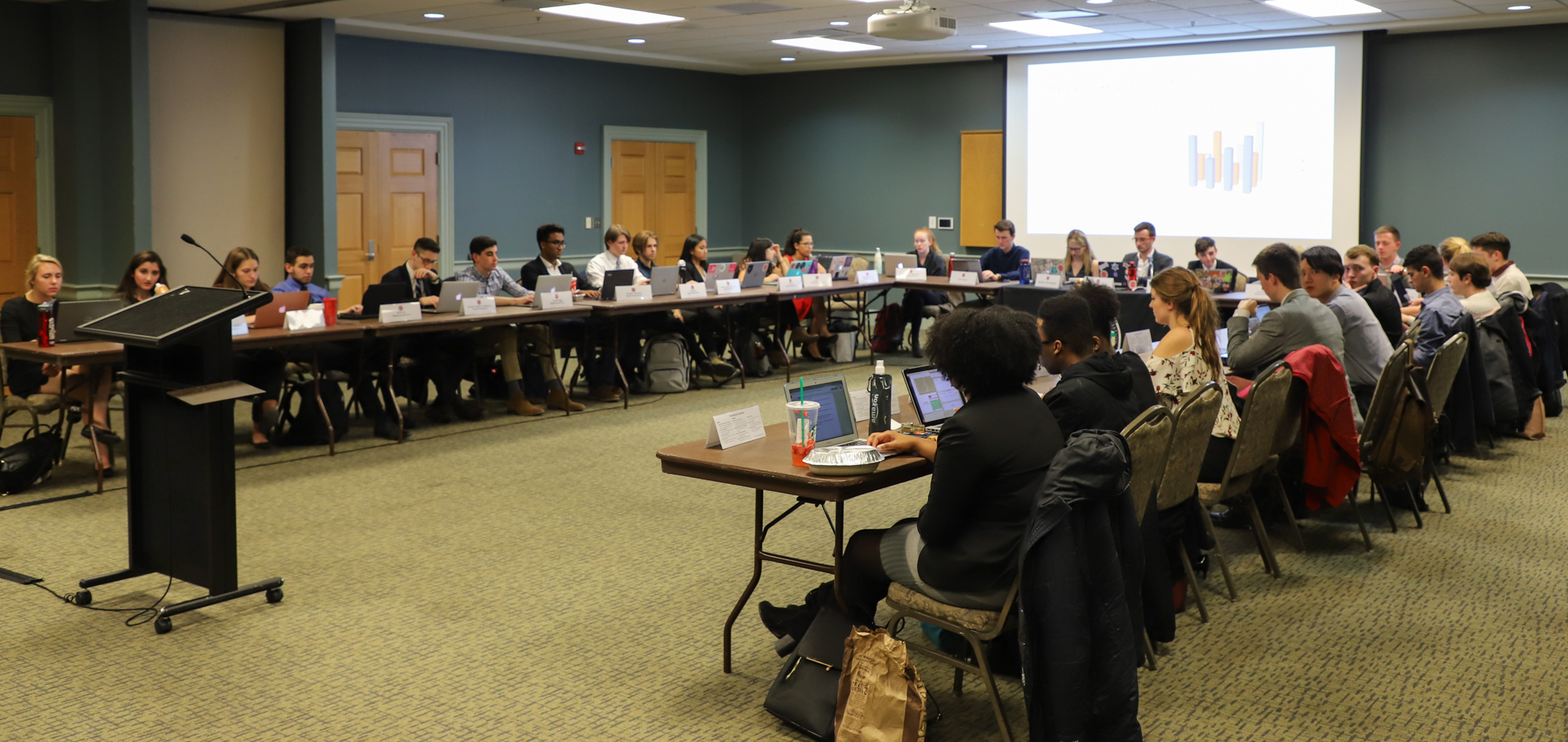The University of Maryland’s SGA is supporting three state bills that mirror campus initiatives during this year’s legislative session, marking a notable increase from the association’s typical one bill per academic year.
The Student Government Association presented these bills to state lesiglators and asked them to sponsor the bills. Mihir Khetarpal, governmental affairs director, said the group is backing a bill that would allow Maryland residents to vote by absentee ballot in local elections without listing an excuse, as well as a proposal to provide tax credits for businesses to pay up to five interns. A third bill backed by the SGA is proposing that all veterans at public colleges and universities have access to priority class registration.
“When we see what’s going on on campus or in the community throughout the year, we see issues that could be solved in Annapolis,” said Khetarpal, a senior economics and government and politics major. “Last year, it led to one, [and] this year it led to three.”
The no-excuse absentee ballot bill, an issue that has sparked debate in recent weeks at the College Park City Council, was first introduced in 2014 by then-Del. Ron George (R-Anne Arundel). This year, it’s being sponsored by Del. Alonzo Washington (D-Prince George’s).
[Read more: SGA representatives testify in Annapolis in favor of intern tax credit bill]
Georgie Jones, the SGA’s civic engagement director, went to Annapolis with Khetarpal to testify in favor of the legislation in a Ways and Means committee meeting in the House on Friday. The committee hasn’t decided yet whether to present a favorable report to the full House floor.
“With classes, internships and jobs and other things that come with being a student, many of our students find it difficult if not impossible to make it to the polls that day to vote in municipal elections,” Jones said in her written testimony. “Furthermore, it’s no secret that College Park faces significant transportation issues and many of our students don’t have access to a car. Depending on the voter’s municipal district, a voter may be required to walk almost five miles to get to and from the polling location.”
Damon Effingham, the legal and policy director of Common Cause Maryland, which identifies itself as a nonprofit watchdog organization, also came to testify in favor of the bill at its initial hearing.
“We know that no-excuse absentee ballots works at every other level in the state, and there’s no reason not to provide this,” Effingham said.
The second bill, which Khetarpal said is designed to help small businesses, would allow companies to claim a tax credit of up to 10 percent of what they paid to as many as five interns, capping the amount at $1,000 for each intern. The tax breaks would run out after the state depleted its $300,000 yearly fund for this initiative distributed on a first-come, first-served basis.
Khetarpal said the SGA spoke to state senators about the intern tax credit bill in 2016 and 2017, and while it has failed in the past, he has high hopes for the legislation to pass this year.
“A lot of times in the first year, you introduce it, you see what happens. [The bill] got a hearing … but it didn’t move anywhere,” he said. “Last year, we introduced it, and it got a favorable with amendments report from the budget and tax [committee] in the Senate, but it got it kind of late in session so it didn’t get to move anywhere in the House. This year we introduced it with amendments again, it’s still early in session and it got a favorable from the Senate, so we’re hoping to do a lot more work in the House and get it out of there.”
Kevin Rudolph, a senior policy analyst for the Maryland Chamber of Commerce, testified on behalf of the business-related proposal at a Senate Budget and Taxation committee meeting on Feb. 14, saying the bill would be a “win-win” for businesses and interns alike.
[Read more: SGA forms task force to foster student lobbying in Annapolis]
“A lot of businesses [the Chamber of Commerce works] with, especially small businesses, want to pay their interns,” Khetarpal said. “A lot of times, it’s sort of a financial question as to whether they should or shouldn’t. Just providing even a 10 percent incentive [can] offer them the mind of, ‘Okay, maybe I should do this, maybe I should be investing in our future.'”
A House Appropriations Committee hearing is scheduled for the veterans bill March 1, according to the state legislature’s website.
SGA President AJ Pruitt said he didn’t experience any backlash against the bill and believed it would pass.
“[The SGA is] really putting out solid, bipartisan bills that are really just here to help the students here at the university but also in the state, because that’s also something that we try to do,” said Pruitt, a senior economics and government and politics major. “We’ll know the ultimate fate of these bills by April 9, but there’s a lot of things that can happen in between then and now that I know [we’re] very focused on.”



